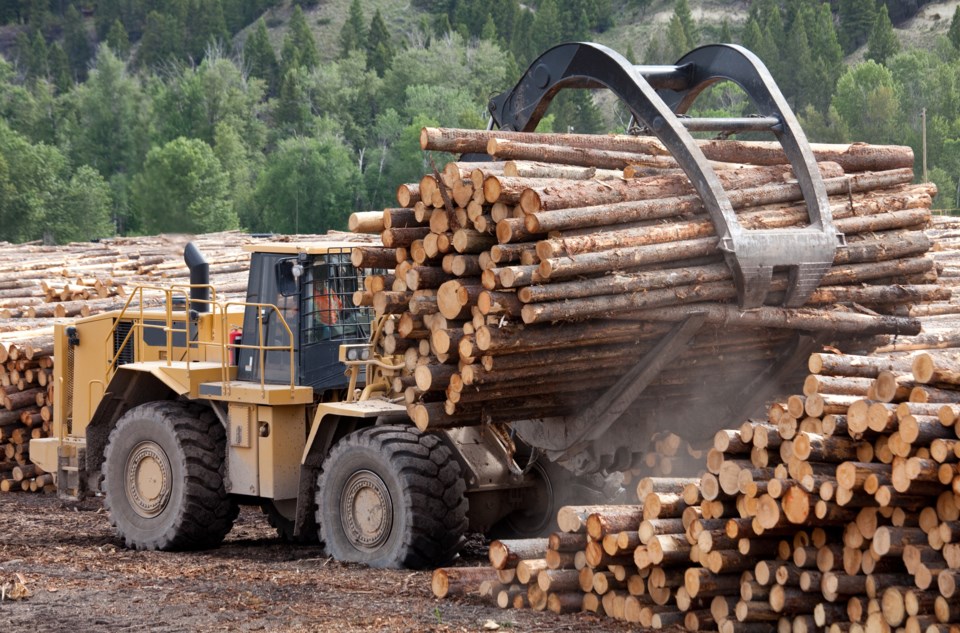British Columbia’s natural resource industries—forestry, mining, energy and agri-food—are being buffeted by many challenges. A weaker global economy is weighing on some commodity prices. Multiplying and increasingly complex regulatory requirements continue to raise operating costs. In forestry, the aftermath of the pine beetle infestation, forest fires and government logging deferrals are all hurting the industry.
The vaunted low-carbon transition is routinely linked to upside opportunities in some resource-based industries, but it also brings a risk that Canadian jurisdictions will lose out to competing jurisdictions that prefer to advance emission-reduction goals using “carrots” rather than the battery of “sticks” that appeal to Ottawa and Victoria. Capital investment is already shifting to other jurisdictions because of costly and uncertain climate policies.
The NDP government’s apparent determination to move to an ill-defined system of “co-managed” Crown land in tandem with First Nations prompts hard-to-answer questions around regulation and how decisions pertaining to industry’s access to land and resources in the future will be made.
It is important to recognize the significant place that natural resources occupy in the B.C. economy. A recent study by Phillp Cross, senior fellow at the Fraser Institute, calculates that primary extraction, related downstream processing and related pipeline and utilities services collectively make up 11.1 per cent of provincial GDP. This does not consider the well-above average “economic multiplier” effects these foundational industries deliver.
The natural resource sector’s share of B.C. GDP has diminished over time, in part because the once-dominant forest industry has contracted, but more because other industries—including residential real estate—have come to play ever-larger roles in B.C.’s economy.
Even so, the natural resource sector’s nominal GDP has climbed 60 per cent over the two decades prior to the pandemic. Strong income gains in natural gas, primary metals, utilities, pipeline transport and refining more than offset the lost income (GDP) in B.C.’s lumber and paper manufacturing industries.
As a small open economy, our collective well-being depends heavily on exports to bolster domestic incomes and—crucially—to furnish the financial means to pay for the vast range of imports that sustain our high quality of life. Natural resources supply more than three-quarters of the province’s merchandise exports and about 45 per cent of total international exports, inclusive of goods and services.
This strong export orientation, coupled with high levels of productivity and wages, augment resource industries’ broader contribution to the province’s economy. A 2019 study commissioned by the NDP government estimated that resource-related industrial activity represents more than half of B.C.’s overall economic base.
These are not “sunset” industries. The imminent start-up of liquefied natural gas production and the prospect of several new metal mines means the value of resource-based exports is poised to rise. In a co-authored paper, we projected that in five years’ time, the LNG boost, mining sector expansion and sustained growth in agri-food exports suggest natural resources will continue to account for at least 45 per cent of total export earnings.
Admittedly, this projection was developed prior to the economic implications of the government’s CleanBC Roadmap to 2030 being identified. Our subsequent understanding of the government’s modelling of CleanBC policies is the plan will significantly dampen employment and income growth in B.C.’s foundational resource sectors, meaning our projections may prove optimistic. But the modelling also shows growth in all sectors of the economy slowing under the CleanBC plan, so the resource sector’s share of GDP is unlikely to fall precipitously.
B.C. is and will remain a resource powerhouse, and our prosperity remains tightly linked to the commercial success of our natural resource industries. This presents a political economy problem in a jurisdiction where the bulk of the population resides in an urban setting and is “distanced” from the contributions of the resource industries that make a disproportionate contribution to well-being, prosperity and government revenue. A review of throne speeches, annual budgets, various policy documents and the government’s climate policies suggests that policymakers have lost touch with the central role natural resources occupy in sustaining and advancing our collective well-being.
Jock Finlayson is chief economist of the Independent Contractors and Businesses Association. Ken Peacock is the Business Council of British Columbia’s senior vice-president and chief economist.






